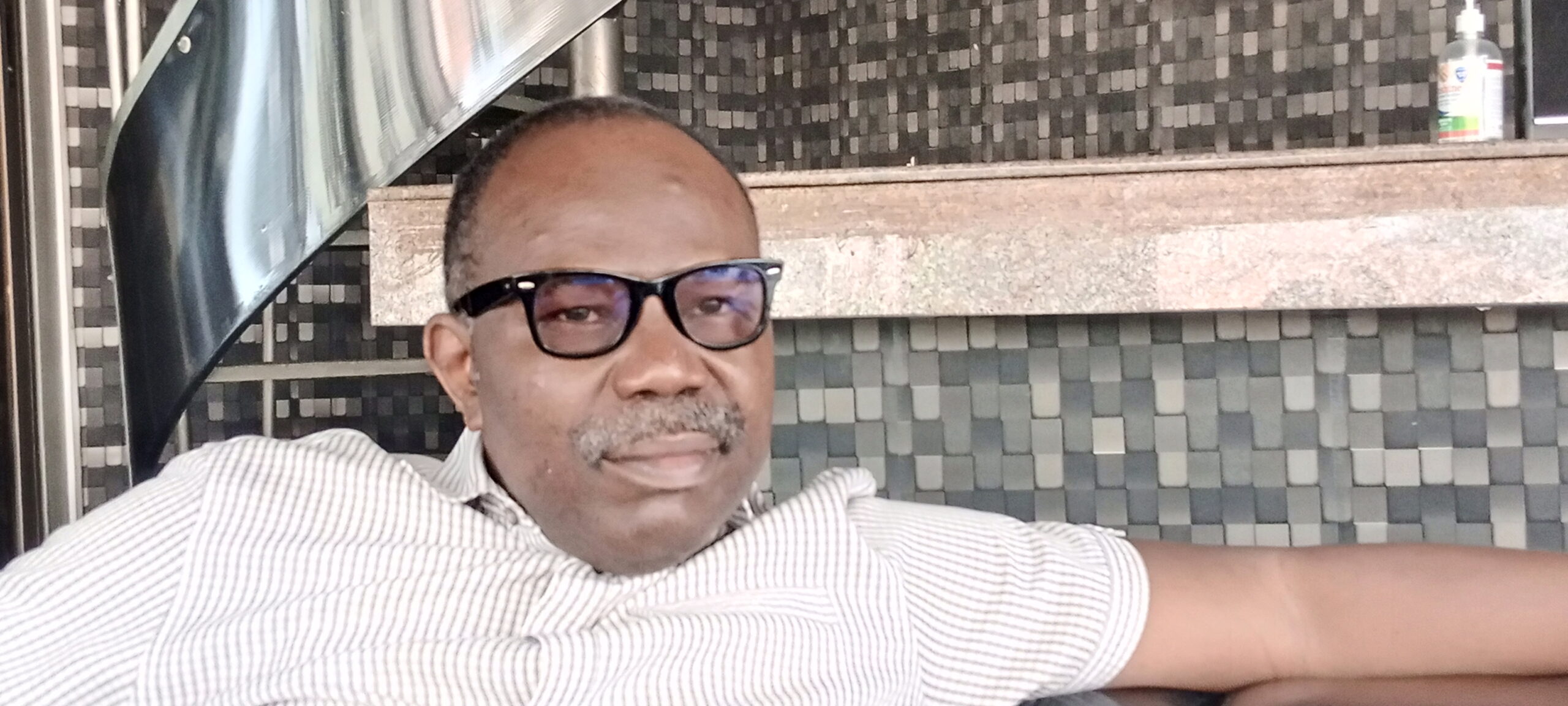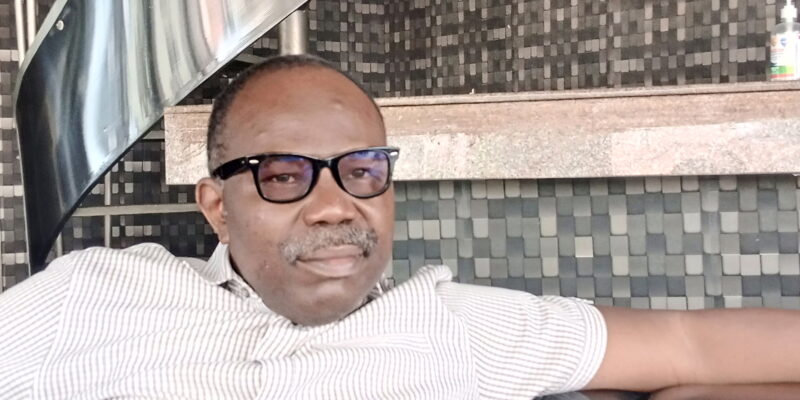
In an unorthodox or unconventional way, I commence this piece with the message that ought ordinarily to form part of the conclusion of my interrogation. Why this must be so stems from the reality that the youth that form the centre of this discussion might not be able to endure me to the end. In their ‘digital’ world, reading constitutes no part of their agenda, save for the purpose of passing examinations. Not wanting to risk the loss of the message, therefore, I have chosen to introduce the subject by way of conclusion. My message simply to Nigerian youths is to wake up from their slumber and be active participants in the political process leading to the emergence of true and genuine leaders of the country.
Now that voter registration is on, they must not only take steps to register to vote in the next general election in 2023, they must ensure they go all out to mobilize their contemporaries to do so. Among other messages I have for them, let their impact be henceforth felt in the political firmament.
A few weeks ago, the world celebrated our youth globally. It is usually a day set aside by the United Nations and dedicated to the youth universally. Nigerian youth are, of course, no exception in this celebration. The only possible distinction between celebrations in other nations and Nigeria might, however, be the nonexistence of basis for celebration of the Nigerian youth, except taking solace in their mere existence, as opposed to actually living. I am sure you will appreciate the difference between a person living a life and another existing within the space of the earth. The comparison is like that of a person having a house or shelter over his head and a person with a home. While one lives in a shell without the facilities that make a home, the others live in a structure with all accessories.
Nigerian youths practically have nothing to rejoice for. Save for those whose parents can afford to pay for it, the Nigerian youth has no access to quality health care, quality education, employment nor good infrastructure. For those on the fringes of existence, who are in the majority, they are largely wretched and now not only shadows of themselves but replicas of persons/entities whom they will never dream of desiring to be.
The Nigerian youth substantially populate the arena of kidnapping, banditry, terrorism, fraud, political thuggery and violence, drug pushing, prostitution, etcetera. His spiritual consciousness has become so completely debased that where he is not into fetishism by joining cults or engaging in money rituals, he is out there solving scientific problems with spiritual means by populating mosques and churches with ridiculous demands that God is tired of listening to, having empowered him with brains and brawns.
Unlike his global counterparts, the Nigerian youth appears to have nothing to celebrate as his future is not only uncertain but bleak. By the categorization of the United Nations, all persons that fall within the range of 15 to 24 years are considered to be youth. In Nigeria, there seems not to be any clear conception of who the youth really is. In some pieces of legislation, 20 years is set to be the age of contracting, while, under the electoral laws, the age of 18 was set to be the qualification age to exercise franchise. However, if the National Youth Policy is something to go by, youth in Nigeria falls within the age bracket of 18 and 35 years. Going by this figure, the youths in Nigeria encompass about 43 per cent of the population of the country. As charitable as this is in terms of its elasticity compared with the United Nations range, the fact is that, in the true Nigerian context, youth classification extends to the age of 40. If this threshold is adopted, the percentage of youth representation in the country extends to 55 per cent. Again, by the voters’ registration data, the youth in Nigeria constitute over 60 per cent of the eligible voters in the country.
Whichever of the figures above that is adopted, the truth is that the youth constitute a sizeable number in the nation. This is supposed to be an asset to the country in terms of youth energy and contribution, where properly harnessed. Regrettably, however, it cannot be said that the value proposition is real in the country. The energy is not only dissipated generally but often diverted to other causes other than noble.
Factors responsible for this ranges from poor quality of education, collapse of values and virtues in the country, infrastructural gaps, corruption and, most importantly, unemployment and poverty. By the latest statistics, about 40 per cent of the population of Nigeria is unemployed and even in a greater number unemployable as a result of the nature and quality of education we impart to them.
A contributory factor is also the way and manner the rulers of the country, as I always enjoy describing them, display affluence. Of course, this is not unconnected with the quality of leadership in the country, produced by a flawed electoral system and process. The fact of the situation is that the Nigerian youth are the highest stakeholders in the Nigerian project. As remarked above, they are the most vulnerable of the lot, negatively impacted upon by bad governance.
Today, apart from a substantial number of them being unemployed and unemployable, they have been forced into trades they primarily never bargained for. They have suddenly become the “hushpuppies” and “woodberries” of the world. They are into various forms of vices, forced upon them by the need for survival and collapse of values. The economy of the country continues to nosedive whilst the nationalcurrency is on the fast lane to worthlessness. While the governor of the Central Bank of Nigeria busies himself by engaging in matters that do not concern him, the country appears not to have a cabinet member in charge of economic policies and finances.
The Central Bank governor now is the policy formulator and implementor and favourably competes with politicians in the media. The primary responsibility of any Central Bank governor is to defend its country’s currency, but not so in Nigeria as economic experimentation is the order of the day. What a country!
The consequence of the mis-match in the governance of the country is the prevalence of vices in the nation today. Terrorism, banditry, kidnapping, fraud, corruption, agitation for secession, unemployment, poverty and widespread insecurity dominate our daily experience.
These are afflictions largely perpetrated by the youth, partly out of frustration. The major factor that is, however, accountable for the problem of lack of good governance arises from the quality of leaders of the country, engendered by our flawed electoral processes. The result of this, not including voter apathy, is an uninformed electorate.
By the data released by the Independent National Electoral Commission (INEC) on the last election, only 35 per cent of the total electorate determined who the present rulers are. Of the said 35 per cent, more than 70 per cent of them are not only illiterates but uninformed voters. Consequently, this comfortable majority who neither knew why they were voting nor the reason they were voting for a particular party or candidate, decided the rulers.
The implication of this is that, by their error of judgment due to ignorance, they endangered not only themselves but all of us. This danger remains so and still looms because of the neglect, refusal/failure of the informed, particularly the elite, to participate in the electoral process. Of these elite are the substantial number of youth who are educated. Thus, it is safe to conclude that it is inertia or the lackadaisical attitude of the presumably informed youth in matters of elections that continues to endanger all of us, and continuously renders our youth vulnerable and susceptible to all manner of manipulations and vices. Therefore, it behoves the youths to wake up to reality and embark, not only on massive registration as voters or vying for political offices, but also educating and enlightening the mass of illiterate voters.
It is important to assist these bulk of uninformed voters to connect their votes to their lives and stop merchandising their votes, which they see as products. It is this scenario confronting Nigeria in contemporary times that explained Plato’s conclusion that democracy is the rule by the ignorant. Using the ship navigation theory, Plato contends that, in the choice of a captain, a popular vote is ineffective because people can be swayed by characteristics as irrelevant as their appearance.
As the highest stakeholders in the Nigerian project, I exhort our youths to climb the pedestal now and make a difference in the electoral process. Globally, several of your age-mates are heads of state and government. Jacinda Arden became Prime Minister of New Zealand at age 37; Emanuel Macron, became President of France at age 39, Sebastian Kurz of Austria assumed office at 31 years old; Sanna Marin became Prime Minister of Finland at 34 years old; Juri Ratas assumed Prime Ministership of Estonia at 39 years old; while Sheik Tamim bin Hamad Al Thani became Emir of Qatar at 36 years old, to mention but a significant few of heads of government. What then is stopping Nigerian youths?
Are you not tired of the recycling going on in the country’s leadership, featuring geriatrics and spent forces? The time is now for real change from you. Gone are those days that youth were described as leaders of tomorrow. The aphorism is now a misnomer in contemporary Nigeria. Let me say without fear of contradiction that youth in Nigeria are now leaders of yesterday, as their grandparents are still the ones occupying the leadership positions in the country. The time of your parents is gone and your time is vanishing. Arise and save the country from collapse and eventual extinction. There is no tomorrow coming or approaching for the youth. You have to slug it out with the sit-tight emperors of the country.
Most of them are contemporaries of General Yakubu Gowon that ruled the country as the head of state, far back in the year 1966, over 50 years ago, at the age of 31, and they are still in leadership positions today. In such circumstances, do you expect any miracle as per the progress of the country? Certainly not. My message, once again, is for the Nigerian youth to rise up to thepresent challenge of the nation by fully participating in elections. You must proceed to register as voters en masse, aggressively mobilize other youths to register and vie for political offices, educate and enlighten uninformed voters, protect the vulnerable voters, as in the marketmen and women and civil servants.
Now is the time to change the narrative of credible elections by doggedly updating yourselves on the developments in the electoral process and ensuring that votes count. This is the only safety valve and guarantee of any future to the youth in the country. I rest my case while I will continue to urge you through other media.

Comments